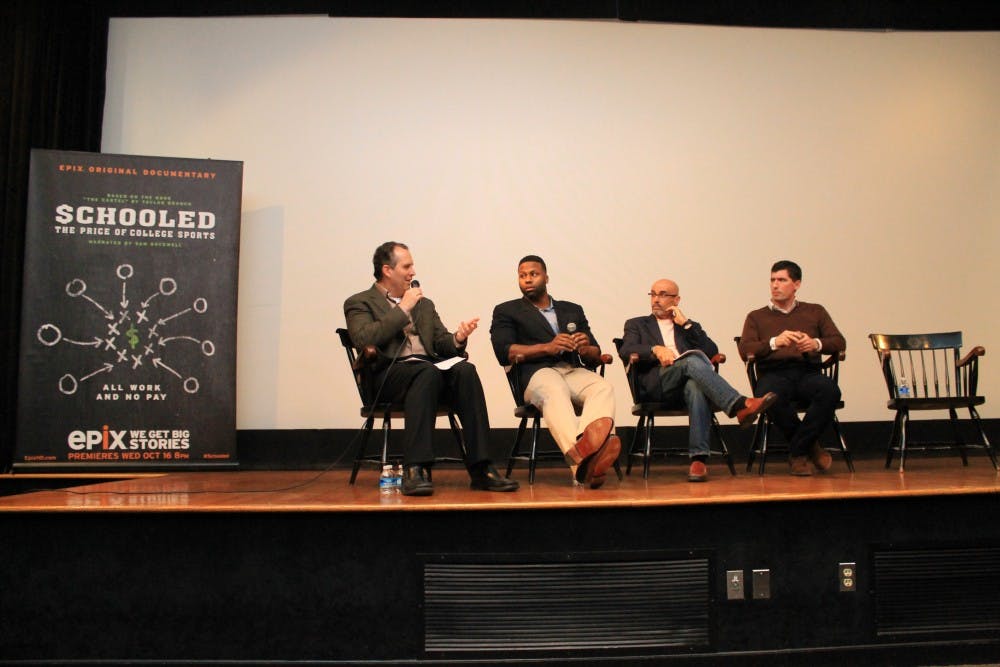Experts, former players discuss issues with regulations
At a showing of the EPIX documentary “Schooled: The Price of College Sports” on Tuesday, former University of North Carolina football star Devon Ramsay reflected on his experience as a college athlete.
“I felt like I’d lost everything I’d been working up to since I was 10 years old,” Ramsay said, referring to the 2010 NCAA ruling that declared him ineligible, following allegations that he received special help from school tutors.
In that ruling, which was later declared unfounded by the UNC Honor Council, was discussed during the post-viewing discussion on the role of the NCAA in restricting payment and other benefits to student-athletes on the grounds that college athletes are amateurs.
The NCAA currently prohibits all outside monetary compensation to student-athletes beyond tuition and room and board scholarships and prohibits outside gifts of any kind. Those gifts can also include any sort of undue academic help or exceptions.
In Ramsay’s case, that ruling was applied to a small revision carried out on one of his academic papers by a university tutor. For many other players, however, those rules can be applied to allegations of cheating or academic misconduct that is often perpetuated or ignored by university personnel.
While the NCAA maintains that these restrictions provide a fair and balanced situation in which players are devoted to their studies and the integrity of the game, many have made the case that they are simply unfair to the student-athletes themselves.
The film featured specialists in college athletics, former players and college officials from NCAA Division I programs to argue that such restrictions place undue burdens on student-athletes, many of whom participate in football for more than 40 hours a week.
Mary Willingham, a learning specialist at UNC who previously worked with student-athletes, also argued that educational opportunities for many recruits, some of whom enter college with reading abilities around an eighth-grade level, are not sufficient. She pointed to an athletic culture focused on winning records rather than graduating athletes, a culture that often leaves student-athletes undereducated at the end of their college career.
These opinions were also discussed at a panel discussion by relevant experts that occurred at the conclusion of the film’s showing. Panelists included Andrew Muscato, the film’s producer; Devon Ramsay, a player featured in the film; Robert Turner, a former professional football player turned sociologist; Richard Southall, director of the College Sport Research Institute and Dwayne Ballen, a former national sports reporter who moderated the panel.
The panelists discussed ideas like the “C’s get degrees” mentality held by many players, the inherent unfairness presented to student-athletes who provide major benefit for their universities without compensation and educational problems that many student-athletes face due to their commitment to sports, particularly the difficulty of managing a quality education with the stresses of collegiate sports.
At one memorable moment, Ramsay was sarcastically questioned as to whether or not his recruiting coach made it clear that education was his No. 1 priority.
“Yeah, yeah,” Ramsay jokingly replied, “for sure.”

